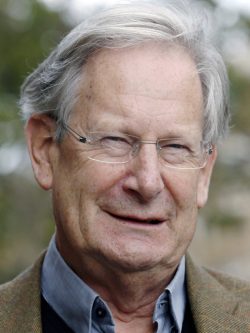 IF, like us, you love live performance, whether it is theatre or music, you will be desperately missing it, and looking forward to a time when we can once again sit in Bristol Old Vic or Bath Theatre Royal, Poole’s Lighthouse arts centre or Salisbury Playhouse.
IF, like us, you love live performance, whether it is theatre or music, you will be desperately missing it, and looking forward to a time when we can once again sit in Bristol Old Vic or Bath Theatre Royal, Poole’s Lighthouse arts centre or Salisbury Playhouse.
But while they remain closed in this interminable lockdown, live streaming is the next best thing. And it can be a very good thing, if you can stream the music through excellent speakers, as we discovered when we logged on for a concert by the Bournemouth Symphony Orchestra, with conductor Sir John Eliot Gardiner and pianist Stephen Hough.
Nothing can replace the atmosphere of live performance, but when skilled camera work allows you to watch the magical speed and sensitivity of the pianist’s fingers on the keys, the intensity and involvement of the conductor and the commitment of the musicians, you are completely caught up in the performance. Yes, you miss that rush of anticipation before the conductor opens proceedings and the shared enjoyment of the applause, but the emotion and excitement were all there in this magnificent concert.
This was the opening live concert of 2021 at the BSO’s home, Poole’s Lighthouse arts centre, and it was a treat from the start – an introduction by the always delightful Catherine Bott, in conversion with John Eliot Gardiner.
 The opening work was the overture to Genoveva, Schumann’s rarely staged only opera. Inspired by the legend of St Genevieve, it is set in the 8th century, and centres on the characters of Count Siegfried of Brabant, his wife, Genevieve, and his steward, Golo, who remains at his court to protect the Countess when Siegfried joins the king, Charles Martel, to fight the Arab invaders. It is a story of sexual desire, chastity and betrayal, ideally suited to Schumann’s expressive music. It marked a new direction in German opera, moving away from the recitative-aria structure to a more effective dramatic continuity.
The opening work was the overture to Genoveva, Schumann’s rarely staged only opera. Inspired by the legend of St Genevieve, it is set in the 8th century, and centres on the characters of Count Siegfried of Brabant, his wife, Genevieve, and his steward, Golo, who remains at his court to protect the Countess when Siegfried joins the king, Charles Martel, to fight the Arab invaders. It is a story of sexual desire, chastity and betrayal, ideally suited to Schumann’s expressive music. It marked a new direction in German opera, moving away from the recitative-aria structure to a more effective dramatic continuity.
Gardiner has a real affinity with Schumann’s music, and was in his element bringing out the roller-coaster emotions of a story which the (often very catty) George Bernard Shaw described as a “nakedly silly” plot. It didn’t sound silly at all – it was a delightful and moving curtain-raiser for the drama to come.
Brahms’ Piano Concerto No 1 is passionate, complex and full of contrasts. It makes huge demands on the soloist and the orchestral players. The composer worked on it for about five years and was only 26 when it was first performed (in 1859). It is in many ways truly a young man’s creation, with its stormy passions, moments of lyrical intensity and high spirits. And weaving through the work, there are familiar Brahms phrases and themes hinting at the symphonies and concertos to come.
Hough was a revelation to watch, his eyes often closed with the emotions and demands of the music. The relationship between soloist, conductor and musicians was intense and involving. From the opening drama of the timpani through to the vivacious Hungarian elements in the final movement’s rondo, there was a constant stream of brilliant music, dazzling virtuosity at the keyboard, passion, lyricism and dancing energy from the conductor and glorious playing from the orchestra.
Stephen Hough and John Eliot Gardiner have never shared a concert platform before, which seems surprising given the length and breadth of their repertoires and their careers on stages around the world – so this triumphant performance was a thrilling occasion for the audience, even if the musicians couldn’t hear our enthusiasm!
FAC